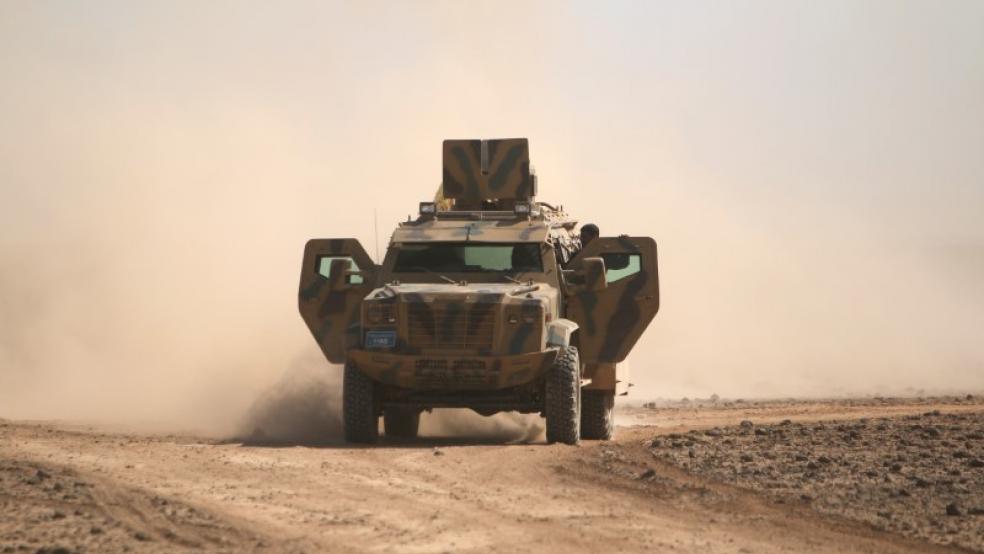Roughly a month after it first began deploying military personnel and equipment into Syria, the bills for Russia’s intervention on behalf of the Assad regime are starting to stream in.
“We believe a campaign like the one they are running there right now would cost between $2.3 [million] and $4 [million] a day,” said Ben Moores, senior analyst at IHS Jane’s, told The Financial Times.
Related: Putin Is Learning a Hard Lesson in Syria, but Pretends Easy Victory
That is far less than the estimated $10 million the U.S. is spending each day on its air campaign in Iraq and Syria, but it shows Moscow’s hundreds of air raids in the country are burning through rubles at a steady rate.
Low oil prices and sanctions by Western powers have walloped the Russian economy in recent years, though it’s unclear how much of an impact a prolonged military intervention might have on the country’s books, since defense spending is a closely guarded secret.
The price tag could skyrocket if Russia President Vladimir Putin decides to send more troops, vehicles and aircraft to the Middle East or changes his mind and decides to launch a ground invasion – as was suggested around the beginning of the month – to wipe out anti-Assad forces.
Related: 14 Deadly Weapons Russia Has Sent To Syria
One real development that is likely to drive up costs in the near term is the toll operations in Syria are taking on Russia’s military equipment.
A senior Pentagon official told USA Today that around one-third of the fighter jets and about half of the transportation aircraft Moscow has inside the country are grounded at any given time.
The dusty, blazingly hot desert conditions are wreaking havoc on various platforms and creating headaches those who maintain them, according to the official.
Related: As Russia Agrees to Flight Rules, Will the U.S. Use A-10 Tank Killers in Syria?
Last week Washington and Moscow worked out a deal to avoid conflict in the skies over Syria after a series of aircraft incidents were deemed too close for comfort by the Pentagon. However, neither the U.S. Air Force nor any coalition partners have conducted any airstrikes in the country since October 22.





